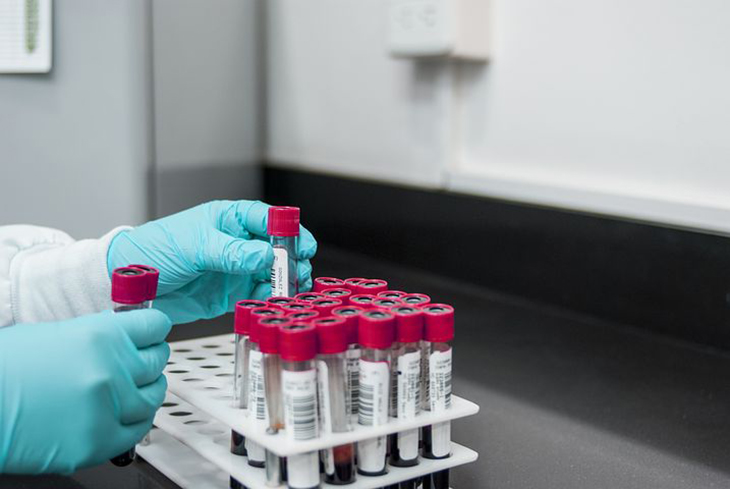
A new discovery of protein changes within the blood may be the pathway for a new test that can catch breast cancer up to two years early.
Just recently, researchers shared that they found the levels of six proteins in people’s blood that changed before they were given a breast cancer diagnosis.
The researchers claim that this could become the basis of blood testing in order to catch breast cancer disease early in people that are genetically predisposed to it, or have a history of breast cancer within their family. By catching the disease early, it also means a reduced chance of death for the patient.
As shared by the American Cancer Society, the 5-year relative survival rate for patients with breast cancer that’s detected early is around 99%. However, if the cancer is detected late, causing it to spread to other areas aside from just in the breast tissue, the survival rate drops by around 10%.
These results were revealed from the cancer study that was started in 2011 called TESTBREAST, or “Trial Early Serum Test” Breast.
At the moment, the study has 1,174 female participants who are at a heightened risk of breast cancer because of their family history, while others carry the gene variants that are understood to raise the risk of breast cancer in women.
For the study, the women were asked to provide blood samples at least once a year for ten years, which is when they go in for their screening. If they develop breast cancer during that time, they are asked to give samples when they are diagnosed as well.
As for the team heading the study who are from Leiden University, they made a very comprehensive analyses of 30 blood samples provided by three women, all of which were diagnosed with breast cancer aside from three who had not been diagnosed.
The group found a few obvious differences with the group, which was a group of six proteins that appeared at either higher or lower levels at least one or two years before they were given their breast cancer diagnosis.
The team, led by Ms. Sophie Hagenaars from Leiden University Medical Center in the Netherlands, presented their findings at the 13th European Breast Cancer Conference. They showed ‘greater variations in the levels of the marker protein were found in between individuals, rather than in the same individuals overtime.’
They also said that this could create the basis of blood testing to be done in order to catch the disease in its earlier stages, especially in those genetically predisposed to breast cancer or those with a family history of the disease. By catching the disease early, there is also a reduced risk of premature death.
According to Hagenaars, “This shows that testing should probably be based both on proteins that differ between women with and without breast cancer and on proteins that alter in an individual person over time.”
She also said, “If further research validates our findings, this testing could be used as an add-on to existing screening techniques. Blood tests are relatively simple and not particularly painful for most people, so people could be offered screening as often as needed.”
The team will also attempt to validate their discovery in a bigger group of TESTBREAST women, both with and without breast cancer.
Co-chair of the European Breast Cancer Conference, Dr. Laura Biganzoli, who wasn’t part of the study said, “Women at a high risk of developing breast cancer take part in screening programs at fixed time-points.”
“If this research ultimately results in a blood test for people with a high risk of breast cancer, that could guide personalized screening and help to diagnose breast cancer at the earliest possible stage,” she added.



